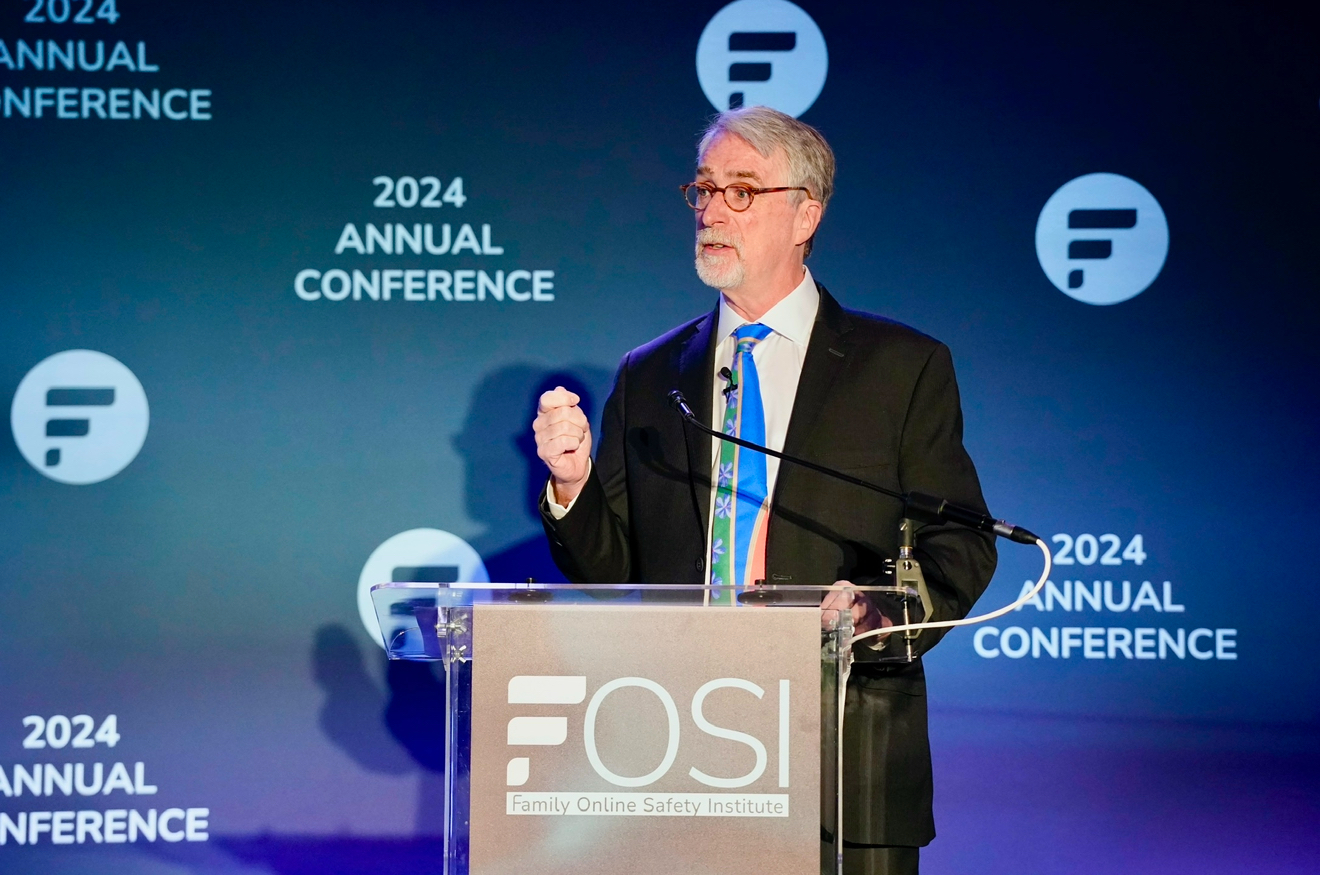Stephen Balkam’s Opening Remarks – FOSI 2024 Annual Conference

Let me add my welcome to this rather special annual conference. As the expression goes, “May you live in interesting times!”
Well these times are certainly that. It’s hard to imagine a more tumultuous period in the world of politics, international relations, technological change and personal upheaval.
The impact of our recent elections have already begun to be felt even though Inauguration Day is still six weeks away. The new Administration is likely to upend many policies in our space from broadband expansion to content moderation to how AI safety is dealt with. We are in for a period of uncertainty and unpredictability in our political, social and personal lives.
Even so, let’s meet this moment with a clear mind and an open heart. We are part of a large and growing group of people who share a common vision and who are dedicated to a unifying cause: To make the online world safer for kids and their families.
And we are committed to do this work based on the sound evidence of researchers, the lived experience of young people and their caregivers and the thoughtful approach of psychologists, advocates, educators, legislators and regulators.
And let’s not forget the tens of thousands of trust and safety workers, all around the world, who toil in the trenches of content moderation. We all bring our unique gifts and skill sets to this challenging, yet hugely rewarding mission.
There is always a unique spirit of collaboration and mutual support when we as a community come together. We are honored and grateful that you are here and we will do everything we can to see and hear what you have to offer and to incorporate your insights into our broader work.
Earlier this year, a book was released that has had a major impact in our space. It is a New York Times bestseller and it has influenced legislators in North America, Europe and further afield. The book is called “The Anxious Generation: How the Great Rewiring of Childhood Is Causing an Epidemic of Mental Illness” by Jonathon Haidt.
I won’t dwell on its dubious methodology or the way it confuses correlation with causation. Nor will I discuss its rather flawed “solutions” or the way in which the author paints an entire generation as “anxious” – using a broad and condescending brush across tens of millions of young people both here and overseas.
For all its flaws, the book and its author hit a raw nerve. There is a large audience eager to latch onto the idea that the explosion of mental health issues among our teens has been caused by the emergence of smartphones and social media.
His thesis seems commonsensical to worried parents and its message resonated with state, national and international politicians looking for a culprit and an easy answer to a complex set of behaviors.
And I couldn’t agree more with his fourth proposal that kids should be given increased amounts of independent play as well as more responsibilities in the real world.
But based on his book, bans have now been proposed – both on phones and social media – for teens under 16. Australia has now passed such a ban into law. Our own Surgeon General has called for a health warning for social media sites and there are numerous other examples at the state and local level.
The problem with blanket bans based on conclusions gleaned from questionable data is that such actions activate the law of unintended consequences.
Bans affect young people’s rights to access content and to participate online – something the UN Committee on the Rights of the Child clearly calls out. Implementing a ban effectively remains a daunting challenge, given no universal age assurance method that has been agreed upon.
And it disincentives platforms from creating safety features for younger users. Ironically, a ban steers innovation away from the under 16 space as it will be assumed (wrongly) that under age users will no longer be there.
What we need instead are thoughtful restrictions, not blanket bans. Restrictions that are reached at the local level or within the home with the explicit involvement of young people themselves.
Our own research, which we have released today, will highlight many of the positive impacts that social media in particular and digital media in general have on teens’ well being. But teens are also aware of the downsides of their digital lives.
So their involvement in the discussions around cell phone and social media use is essential if we parents, teachers and, yes, politicians, are going to reach a balanced and fair set of restrictions in how, when and where they can go online.
The more we involve young people in the creation of thoughtful restrictions, the more they will buy into the rules that are eventually agreed. Bans handed down from on high will create a culture of mistrust and drive young people to find creative and far less safe ways around such laws.
Which brings me to the theme of our conference: “From Protection to Empowerment.” This is not an either/or proposition – either we protect our kids or we empower them.
No, it’s a both and more concept and one that involves government, the tech companies, parents, teachers and the kids themselves. After all, we want to protect kids on the internet, not from the internet.
So, yes, we must shield our kids from the worst of the web, particularly in the younger years. There are parental controls of every shape and size and it is unthinkable to offer a pre-K or elementary school aged child a device with unfettered access to the web.
But beginning in the middle school years and certainly into high school, the training wheels start to come off. We move from being helicopter parents to being more like co-pilots with our kids – working together to explore the best ways to use the online safety tools that social media platforms and apps have developed for young people.
From our own research, teens highly value the features that allow them to block, mute, report or to stay private. And this ability to take control of their digital experiences is the beginning of the kind of independence and resilience we want to encourage in our teens.
After all, a child born in the United States is, from birth, a citizen. And citizens have rights. We are bringing up the next generation of citizens who are, from a very early age, aware of and engaged in the online world. It is in all of our interests to ensure that these young citizens understand their rights and the awesome responsibilities that come with exercising those rights.
And now a word to my friends in the tech industry: You can and must do better to create easy to find and easy to use controls for parents and online safety tools for teens and young people.
You can and must do better to publicize and promote those controls and tools.
And you can and must do better to collaborate with each other. And, wherever possible, to harmonize your tools across the ecosystem so that parents and teens are not overwhelmed with the task of setting and managing controls across countless apps, games, websites and social media platforms.
So, to conclude, let’s consider that empowerment is the best form of protection. It’s about preparing young people for the moment they step out into the world on their own, ready to face the best and worst of what the digital landscape has to offer. And isn’t that what all of us, in this room and beyond, are striving for?
As we embark on today’s discussions, let us challenge ourselves to reimagine what online safety can look like—not just as a range of restrictions, but as a foundation for resilience, confidence, and opportunity. Let’s move from fear to trust, from limits to possibility, and from protection to empowerment.
Thank you.

 Stephen Balkam
Stephen Balkam